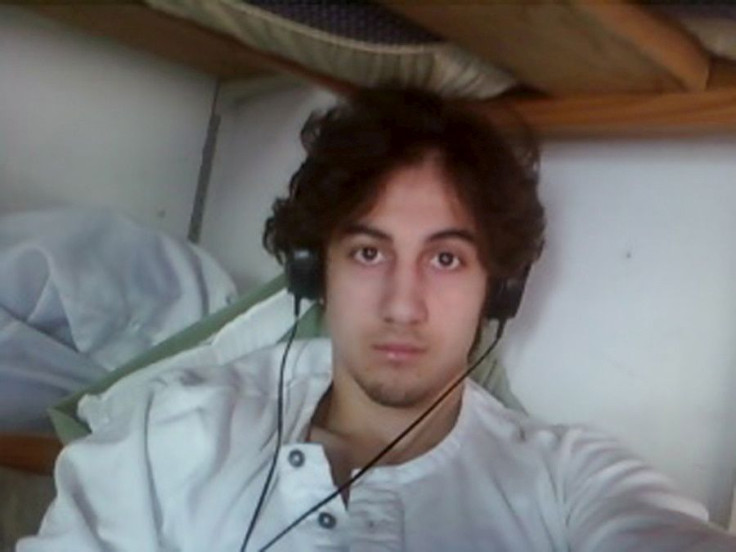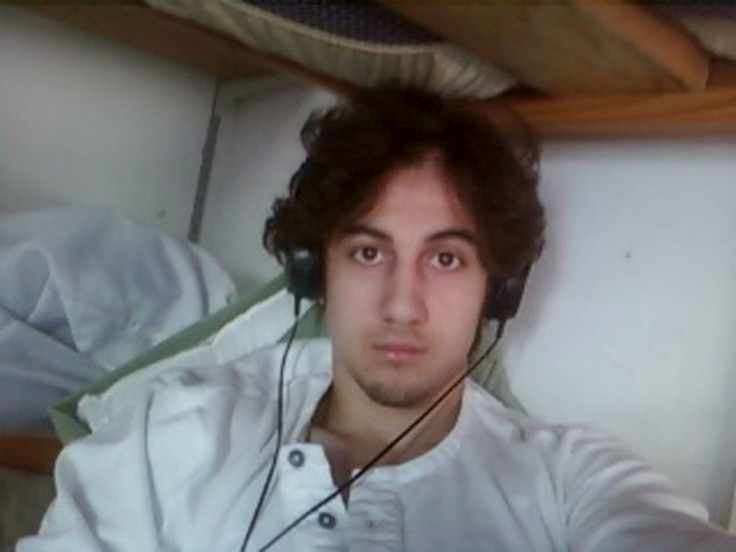When Will The Boston Bomber Be Executed? Dzhokhar Tsarnaev’s Death Sentence Update

Dzhokhar Tsarnaev was sentenced to death in 2015 for the deadly bombing at the 2013 Boston Marathon and has since been behind bars in the ADX supermax prison in Florence, Colorado. Tsarnaev's case, however, is far from over.
"We're probably still a decade out before there's a final resolution in the courts," Robert Dunham, executive director of the Death Penalty Information Center, told International Business Times in a phone interview Monday.
Tsarnaev, along with his brother Tamerlan, had placed two pressure cooker bombs at the marathon's finish line, killing three people and injuring hundreds more. Tamerlan was killed during a police shootout in the chaos following the bombing, while Dzhokhar was eventually captured by authorities. In the proceedings that followed, a jury unanimously voted for the so-called "Boston Bomber" to be sentenced to death by lethal injection.
For Tsarnaev and his legal team, the sentencing was merely the beginning of what will likely be a years-long battle in court.
"The question is not when he will be executed, it's if he will be executed," Dunham told IBT.
The briefing for the case has yet to even be filed in the 1st Circuit Court of Appeals.
"Currently, the parties have asked the 1st Circuit to hold off on setting a briefing schedule until they can complete the record," said Dunham. "So that's where we are: It's 2017 and the case has not yet been briefed in the circuit."
What makes the case especially difficult is that much of it is not a matter of public record, complicating a case which would already make for a long legal battle as all death penalty cases do. The parties involved must first agree what the record contains before they proceed.
"In this case, there's an extremely long record but also a substantial part of this case that was litigated in secret," said Dunham. "Capital cases generally involve much more extensive records than other cases, and this is a case that's even more complicated because of the secrecy and that the government classified it as an act of terrorism."
Once the record is finally compiled, the appeals court will set a briefing schedule. Oral arguments will follow and the court will issue an opinion. Depending on whether it overturns or upholds the death penalty decision, the case could be sent to the Supreme Court. The Court is not obligated to try the case, but it would add additional years to the battle whether they do or not.
"Death penalty issues are very complicated. They're even more complicated when you have to deal with issues of questions of national security concerns and what information can be made public and what information can't be made public," Dunham said. "That's why it isn't surprising how much time the process is taking, and we can expect that the entire appeals process is going to be extremely lengthy."
Should Tsarnaev officially make it to death row, more years of waiting would likely follow. The average prisoner sentenced to death in the U.S. spends more than a decade on death row, according to the Bureau of Justice Statistics. The ever-changing landscape of the nation makes it near impossible to predict what might happen in the future of Tsarnaev's case.
"We don't know what the situation is going to be a decade from now," Dunham said. "If you had asked me 10 years ago what the situation today would be now, I wouldn't have been able to predict it and I probably would have been wrong. We don't know what the landscape is going to be 10 years from now. So I don't think we can even hazard a guess as to what's going to happen."

© Copyright IBTimes 2024. All rights reserved.






















